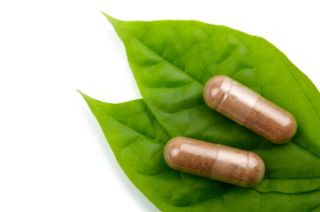
When it comes to alcoholism, researchers would like to score one for traditional Chinese folk medicine. Folklore supports the notion that a compound called daidzin, found in kudzu vine, acts like the anti-drinking medication Antabuse. Daidzin is thought to interfere with the metabolization of alcohol and causes the well-known flushing and sick feeling associated with Antabuse. A recent study out of the Department of Psychiatry at McLean Hospital, Harvard, was inconclusive, but an earlier investigation by Dr. Ivan Diamond of the University of California in San Francisco and Dr. Ting-Kai Li of Duke University Medical Center found that a synthetic derivative of the active ingredient in kudzu vine helped diminish the desire to drink in alcoholic rats. It does so, they believe, by preventing alcohol-induced increases in dopamine in the brain’s pleasure center. This additional finding about daidzin has kept the research alive. The study was published last year in Alcoholism: Clinical and Experimental Research.
Harvard researchers Wing Ming Keung and Bert Vallee first documented the effects of kudzu on drinking. A 2005 paper in Alcoholism: Clinical and Experimental Research, authored by Scott E. Lukas, et. al., reported the results of testing a kudzu extract on a clinical population of “heavy” drinkers. The result: “Kudzu treatment resulted in significant reduction in the number of beers consumed… and a decrease in the volume of each sip.” The earlier researchers, however, did not report any significant effect on the urge to drink.
In their research, Diamond and Li believe they have found a synthetic version of daidzin, CVT-1-216, that does effect the desire to drink. According to Diamond, the study found that the drug “prevents the usual increase in drinking (binge drinking) that occurs after five days of abstinence….”
“Extracts of various parts of the kudzu vine have been used in many Chinese herbal medicine formulas and are said to be helpful in treating a variety of maladies,” said Dr. Li, who was formerly the director of the National Institute on Alcohol Abuse and Alcoholism. “The findings show promise that CVT-10216 might be better tolerated than Antabuse,” he added.
